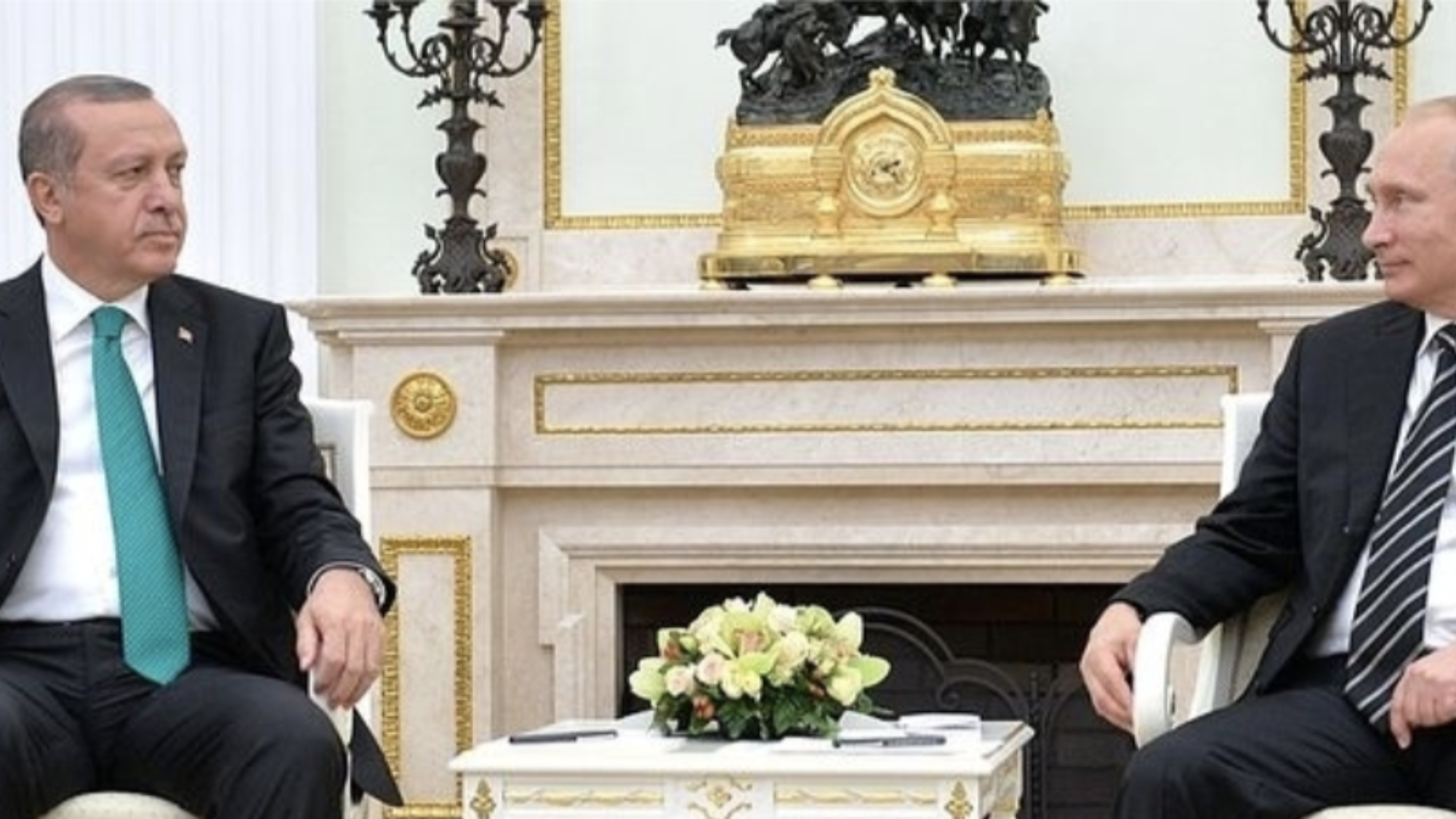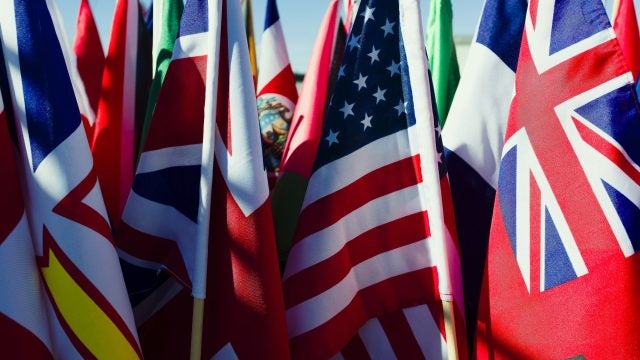
Title: The Autocrats’ Comeback: A Cautionary Tale
Autocrats are making a comeback. Turkish President Recep Tayyip Erdoğan’s recent reelection, and the preceding repression of journalists and dissenters, is a prime example of this resurgence and sheds light on the playbook that many aspiring autocrats follow today. Erdoğan and other autocratic leaders voted into power through democratic means are part of a new breed of dictators—ones who swiftly dismantle the democratic system of checks and balances and the separation of powers designed precisely to prevent tyranny. The resulting system is an electoral autocracy—a system that retains the vestiges of democracy, but looks and acts like a traditional dictatorship. And this democratic erosion is ascending in prevalence—from 2000 to 2010, it accounted for 40 percent of all democratic failures. Personalist rule—a distinct mold of autocracy in which power is concentrated in the hands of one individual, sometimes referred to as strongman leaders—is also on the rise. Today, 40 percent of all autocracies are ruled by strongmen.
To consolidate power, these modern autocrats follow the typical authoritarian playbook to impose deep and swift stresses on their democracies: from repressing media and civil society; to reducing judicial independence; to passing legislation or amending the constitution to expand their powers, repress dissent, or eliminate the opposition. This trend is global, and while it had previously been reserved for nascent democracies, it has increasingly been seen in every pocket of the world. Any future recovery from these measures will be painstakingly slow. Such systems—once formalized—remain formidable beyond the original autocrat’s death, as illustrated by the second-generation autocracy of Nicolás Maduro in Venezuela.
The implications and effects of this new authoritarianism are wide-reaching and grave. Personalist regimes are more likely to adopt volatile and brazen foreign policy postures and make for difficult allies, as evidenced by North Korea’s Kim dynasty, Iraq’s Saddam Hussein, and Russia’s Vladimir Putin. This volatility, coupled with an expansion of autocratic influence, is causing ripple effects around the world. Autocratic regimes’ reach is increasingly insidious into the international liberal order, especially considering the ground gained by Beijing and Moscow to roll back advances on human rights, often obstructing action or proposals on the international stage. Recently, China led a successful effort to block a request by UN Secretary General António Guterres to continue funding a human rights unit within his office charged with ensuring the integration of human rights in UN programs and operations.
Without sufficient checks or backlash from the international community, autocrats are emboldening each other and sharing lessons learned. Further, leaders of states historically opposed to autocracy have made statements spurring them on, such as when U.S. President Donald Trump praised Russian President Vladimir Putin during the recent Helsinki Summit. Authoritarian regimes are also enshrining their “lessons learned” from other like-minded countries in legislation. For instance, in February 2018, the ruling party in Cambodia added a new offense to its criminal code, called lèse-majesté, which criminalizes any insult to the king—where insult is defined as “any speeches, gestures, writings, paintings or items that are affecting the dignity of individual person(s).” This unmistakably copies the section with the same name in Thailand’s criminal code, which has been in place virtually unchanged since the criminal code’s creation in 1908. The number of prosecutions and severity of penalties in the name of this law have skyrocketed since the Thai military took power. And Cambodia seems similarly poised to follow in Thailand’s footsteps; its first arrest under this law was of a teacher who posted a provocative status on Facebook that implicated the King and the ruling party in the dissolution of the opposition party.
Democratic breakdowns and increasing inclinations toward authoritarianism also pose strategic implications to global security, especially in those countries that are geopolitically vulnerable, such as Egypt, which is buckling under the effects of President Abdel Fattah el-Sisi’s repressive regime. Further, while the global threat of terrorism morphs and evolves, autocratic measures can produce or exacerbate instability in those countries where extremism is rampant. Rodrigo Duterte, President of the Philippines, represents an existential threat to his people; his “war on drugs” has claimed tens of thousands of lives. Human rights abuses have long been recognized as priming the recourse to violent extremism; this adds a layer of complexity to the growing presence of ISIS in the Philippines, which is still haunted by ISIS’s 2017 siege in Marawi.
Meanwhile, countries like Turkey and Hungary—which are grappling with the further consolidation of power in the hands of Turkish President Erdoğan and Hungarian Prime Minister Viktor Orbán—must concurrently contend with the unprecedented migration crisis. Though Turkey’s migration policies are sound while refugees await resettlement, Hungary has created a hostile environment for migrants. Orbán’s government has used the influx of migrants and refugees to create a climate of suspicion, instilling fears of foreign influence and terrorists among its people.
The exacerbation of instability, which may in some cases be spurred on by autocratic leaders, creates a vicious cycle—it is precisely the perception of growing vulnerability that lends individuals to vote such leaders into power. Compounded by populist sentiments, citizens’ ears are often primed and eager to listen to strongman leaders’ messages of preventing change and maintaining stability.
From these challenges to democracy as a system of governance—and from the ensuing backsliding—one can surmise that democracy is fragile and vulnerable to attack, especially to those that are insidious in nature. In response, a democracy playbook must be nimble and innovative. Successful resistance movements have included everything from nonviolent civic activism, to maintaining accountability through strong media and civil society presences, to leveraging the fervent voices of the private sector. In Malaysia, for instance, the opposition party disrupted expectations when it overthrew six decades of one-party rule. Protests and the opposition’s enhanced legitimacy after winning state elections paved the way for this victory. Though hopes for the new government’s performance are high, these events illustrate that change at a local level can have ripple effects that extend to the national stage. Those entry points which may lead to democratic gains are precise and localized by country; once achieved, advancements must be built upon and incentivized by the international community.
In Cambodia, for instance, Prime Minister Hun Sen has been in power for over 30 years, and is the longest-ruling leader in Southeast Asia. He earned his reputation as a strongman through his manipulative and ruthless strategies. Hun Sen has systematically undermined the checks and balances in Cambodia’s system of governance —from prohibiting the independence of the judiciary, to sponsoring self-serving constitutional reforms, to systematically repressing dissent and civil society. The upcoming July 2018 elections are an unabashed farce after the banning of the opposition party, whose members were then swept from parliament. In this context, the “entry points” to roll back autocratic consolidation must build upon the momentum of a strong civil society and upon the international community’s historical investment in the country. To further reinforce civil society in the face of a rising government crackdown, civil society organizations must enhance their skills and capacity for grassroots organizing and movement building to engage rural populations effectively, thereby creating a bottom-up demand for democracy. And the international community should amplify their call for the reinstatement of the opposition and legal reform. The upcoming elections signify an important benchmark for action, but demands for democratic progress should not diminish after they take place.
The previously-resilient democracy in the United States is beginning to wobble as its foundations are being challenged to their very core. While the U.S. must make strides to reinvigorate party representativeness and to reform the executive branch and expectations of the modern presidency, it should also remain cognizant that autocratic regimes undermine U.S. national security interests. Certainly, the U.S. National Security Strategy acknowledged that, “Political problems are at the root of most state fragility.” And at the very core of these electoral autocracies are pure political problems.
Moreover, research shows that peaceful societies—those that are sustainably peaceful, instead of those that are merely absent of conflict—must rest on the foundation of acceptance of the rights of others and on a well-functioning government. The Stabilization Assistance Review also recognizes the inherently political nature of instability that gives way to violent conflict. As such, stabilization efforts should include the safeguarding of governing institutions and politics against the possibility of autocratic cooptation.
But at a minimum, the rise of strongman leaders not only prompts deliberation to respond, but also calls for a moment of reflection surrounding those characteristics and types of leaders that are best suited for a head of a democratic government. Perhaps forbearance, instead of charisma, should be considered an essential trait of a country’s leader.
. . .
Lauren Mooney is a democracy and human rights researcher and practitioner. Previously, she was the program manager and research associate for the Human Rights Initiative at the Center for Strategic and International Studies.
More News

This article compares U.S. and Chinese approaches to artificial intelligence (AI) exports in Africa and examines how these disparate approaches have produced both downstream benefits and challenges for the region.

On May 20, 2025, the World Health Assembly unanimously adopted the World Health Organization (WHO) Pandemic Agreement, an international treaty designed to strengthen pandemic prevention, preparedness, and…

As the Trump administration proposes a sweeping overhaul of the US foreign assistance architecture by dismantling USAID, the Millennium Challenge Corporation (MCC), and restructuring the State Department, there is an…